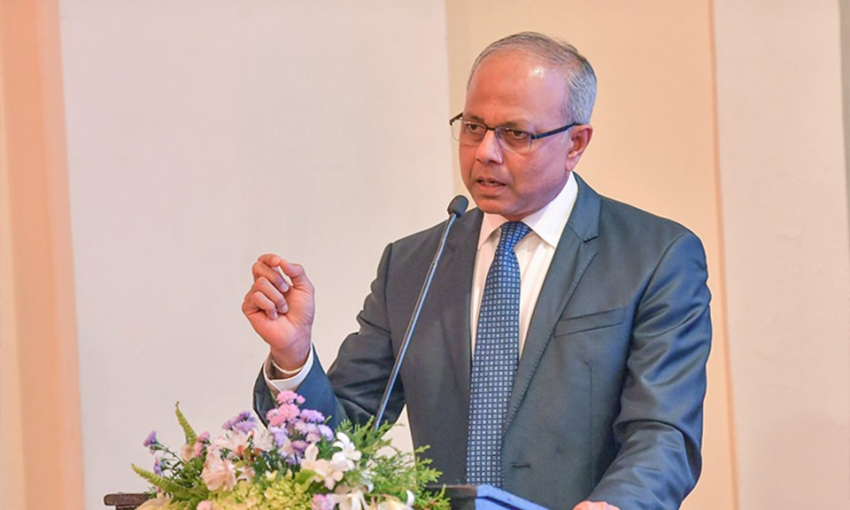Chief of Presidential Staff and Senior Advisor to the President on National Security, Mr. Sagala Ratnayaka, emphasized that just as the country was saved from the economic crisis by making unpopular decisions, similar decisive actions are necessary to control the spread of floods and dengue. He assured that the positive results of these measures would become evident in a few more years.
Mr. Ratnayaka also pointed out that the spread of dengue could be significantly reduced if citizens fulfill their responsibilities properly.
He made these remarks while participating in the inauguration of the flood response and anti-dengue campaign organized by the Sri Lanka Red Cross Society – Colombo branch, held recently at the Taj Samudra Hotel in Colombo.
Mr. Sagala Rathnayaka further elaborated,
“In the event of a disaster, the government, along with various associations and countries, spends a significant amount of money on relief efforts. However, if we take proactive measures to mitigate flood situations before they occur, we can save considerably more money than we would spend on flood response.
Similarly, the cost of measures to control dengue is much lower than the cost of healthcare required due to dengue outbreaks. It is crucial to recognize that the loss of life and the challenges faced by affected families cannot be quantified in monetary terms.
Now the time has arrived to make informed and proper decisions regarding these issues. These decisions may not be popular, but they are necessary. We must make the right choices, even if they are not immediately popular. Our success in emerging from the economic crisis was due to making the right decisions, even when they were not popular. The benefits of such decisions will only become apparent after a few years.
Due to the structural reforms we have implemented, we have been able to sustain businesses, industries, and investments. The current government has also undertaken structural reforms to reduce fraud and corruption. These decisions were not popular, but in Sri Lanka, we are accustomed to making popular decisions as elections approach.
However, in matters like floods and dengue, we must take tough, unpopular decisions. One thing we observed during the last flood situation is that our country’s mechanisms, citizens’ actions, and public servants’ efforts have been severely impacted by these disasters. We saw that houses were built in wrong places, drains were blocked, and some people constructed roads to their houses after filling paddy fields. The blocked drains prevented accumulated water in the city from draining away. Rivers were obstructed, lowlands were raised and converted into land, improper approvals were taken, swamps were reclaimed stealthily, and power was misused for landfills. Many of these mistakes have led us to our current situation. Therefore, these mistakes need to be corrected immediately.
Dengue has also reached a critical situation. If we as citizens fulfill our responsibilities properly, dengue will not spread like this. Therefore, we must make laws to control this situation. If we do not, the country will not progress.
Even though Colombo is poised for rapid development, if it floods after development, that progress is rendered useless. We must ensure development that avoids submergence. Public funds should be used effectively so that neither the public nor public officials are burdened.
Decisions in any field can now be made using artificial intelligence and new technology applied to old data. This approach can significantly reduce mistakes. By analyzing weather patterns, geological data, satellite images, environmental factors, and more, we can predict the probabilities of disasters. I urge the Disaster Management Center and the Red Cross Society to jointly take the lead in this initiative.
Senior Vice President of the Sri Lanka Red Cross Society Mr. Jagath Abeysinghe, Director General Dr. Mahesh Gunasekara, and a group of officials representing various government institutions, including the Ministry of Health, the Ministry of Education and the Disaster Management Center, were also present on the occasion.




















